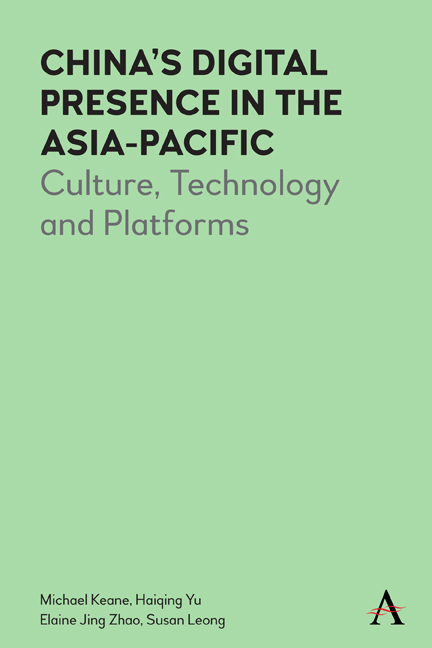4 - Platform +
Published online by Cambridge University Press: 20 January 2022
Summary
Sichuan opera, one of the most treasured of all Chinese arts forms, is wellknown for a virtuoso performance called ‘face changing’ (bian lian), in which a performer uses colourful masks to rapidly change face. From a cultural perspective the meaning of bian lian in Chinese signifies agility and mastery, as well as having connotations of secrecy. With the Chinese state hoping to capitalize on the potential of digital technologies, the role played by indigenous online platforms is critical for driving economic growth, ensuring cultural revitalization and projecting national soft power.
The runaway success of the digital economy within the PRC over the past decade came as no great surprise to astute observers of China's technology sector. A burgeoning commercial internet, driven to new heights by mobileonly internet phone usage, precipitated a bull run in venture capital markets between 2015 and 2019. Many Chinese internet companies listed publicly. By 2016, Baidu, QQ and Taobao were among the top 12 globally in terms of traffic owned by Baidu, Alibaba and Tencent; by 2015, these platforms had bought out 75 per cent of successful start-ups in China. Their founders and CEOs are the new faces of digital China, the digital version of the Chinese dream.
This chapter examines industry and policy debates concerning the platform economy. We show how China's digital platforms are advancing commercial empires in the Asia-Pacific. We consider how these platforms represent a new image for China's communications industries. Once fully state-owned and weighed down by political baggage, the leading players are young, smart and innovative. China's digital champions are now wearing international masks. We look at how these anointed digital champions are promoting public–private diplomacy within the ‘going out’ initiative.
In the first section we examine the concept of platforms and the crossdisciplinary field of platform studies. Following this, our analysis of the hyper-competitive market behaviour of Chinese online platforms reveals a paradoxical alignment with government national development agendas on the one hand and a desire to build a series of capitalist empires beyond the PRC on the other.
- Type
- Chapter
- Information
- China’s Digital Presence in the Asia-PacificCulture, Technology and Platforms, pp. 67 - 82Publisher: Anthem PressPrint publication year: 2020



